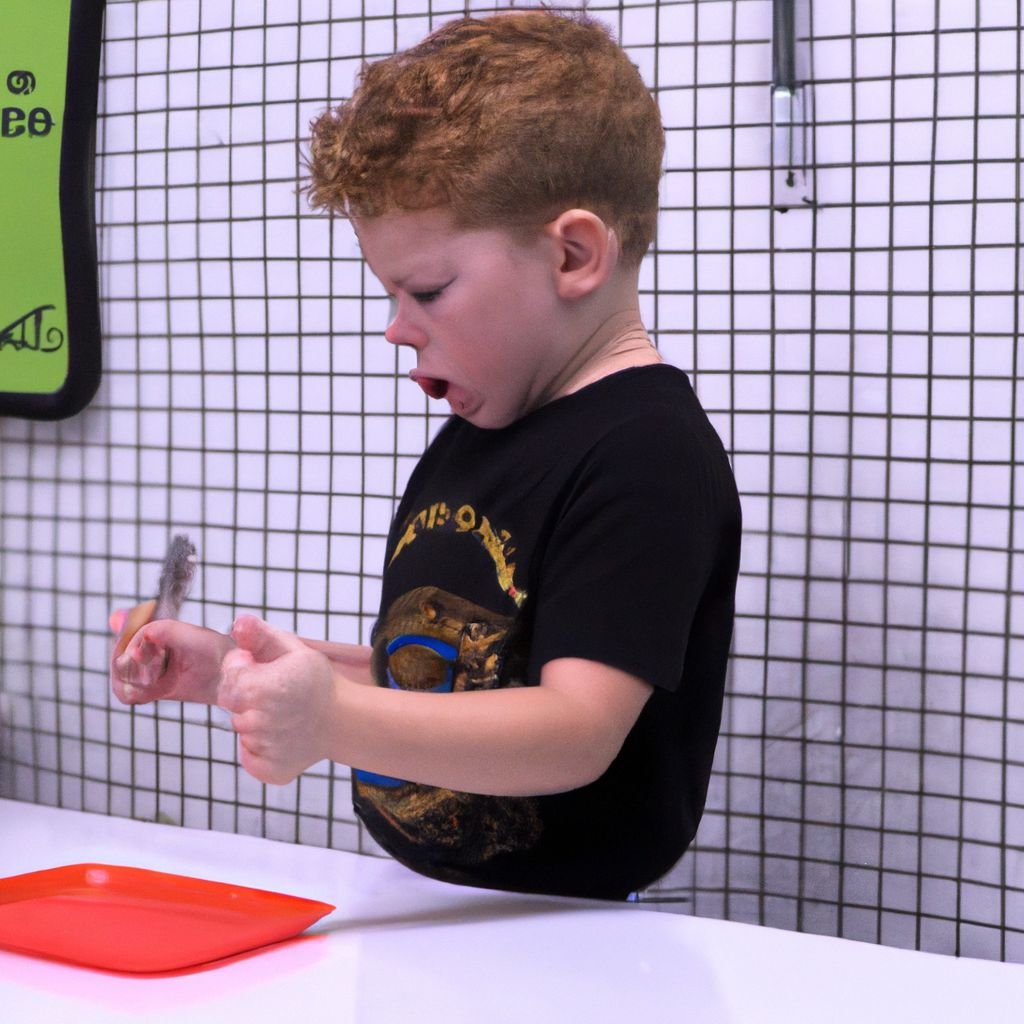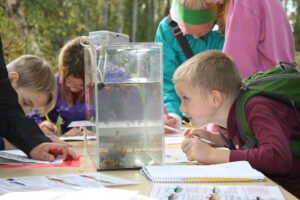Cooking with preschoolers is not only a fun and enjoyable activity, but it also offers a range of benefits for their development. From developing their taste buds to building important life skills, cooking projects can be a valuable learning experience. In this article, we will explore various simple and delicious recipes that are perfect for preschoolers, as well as ways to explore different food cultures and nurture healthy eating habits. Here are the key takeaways from this article:
Key Takeaways
- Cooking with preschoolers helps develop their taste buds and encourages them to try new flavors.
- Engaging in cooking projects helps preschoolers build important life skills such as following instructions, measuring, and problem-solving.
- Safety should always be a top priority when cooking with preschoolers. Supervision and age-appropriate tasks are essential.
- Simple recipes like fruit salad, homemade pizza, creative sandwiches, and baking adventures are perfect for preschoolers to enjoy and learn from.
- Exploring different food cultures with preschoolers can broaden their horizons and introduce them to new flavors and traditions.
The Joy of Cooking with Preschoolers

Why Cooking with Preschoolers is Beneficial
Cooking with preschoolers is not only a fun and enjoyable activity, but it also provides numerous benefits for their development. Preschoolers are at an age where they are naturally curious and eager to explore the world around them. By involving them in cooking projects, you can foster their curiosity and encourage them to ask questions about different ingredients, flavors, and cooking techniques. This hands-on experience allows them to learn about the process of food preparation and gain a deeper understanding of where their meals come from.
Developing Taste Buds through Fun Recipes
Cooking with preschoolers is a wonderful way to develop their taste buds and introduce them to new flavors. By involving them in the process of preparing and cooking food, you can help expand their palate and encourage them to try new things. Exploring different ingredients and experimenting with flavors can be an exciting adventure for young children. It allows them to engage their senses and develop a deeper appreciation for the variety of tastes that food has to offer.
Building Life Skills in the Kitchen
Building life skills in the kitchen is an essential part of a preschooler’s development. Cooking with preschoolers not only teaches them about food and nutrition, but also helps them develop important skills such as following instructions, measuring ingredients, and problem-solving. By involving preschoolers in the cooking process, they learn to be independent and gain a sense of confidence in their abilities.
One way to encourage life skills development in the kitchen is by creating a cooking routine. Establishing a regular cooking time with your preschooler allows them to become familiar with the kitchen environment and the tools used for cooking. This routine also helps them develop a sense of responsibility and organization as they gather the ingredients and prepare for the cooking activity.
 https://direct.me/mskerriscorner
https://direct.me/mskerriscorner
Another important aspect of building life skills in the kitchen is food safety. Teaching preschoolers about proper handwashing, safe handling of utensils, and avoiding cross-contamination is crucial for their well-being. By instilling these habits early on, you are setting them up for a lifetime of safe and healthy cooking practices.
To make the learning experience more engaging, you can incorporate games and challenges into the cooking process. For example, you can turn measuring ingredients into a math game by asking your preschooler to measure out specific quantities or count the number of ingredients used. These interactive activities not only make cooking fun, but also enhance their numeracy and problem-solving skills.
In summary, building life skills in the kitchen is an exciting and educational journey for preschoolers. By involving them in cooking activities, you are not only teaching them about food and nutrition, but also fostering their independence, confidence, and problem-solving abilities. Remember to establish a cooking routine, prioritize food safety, and make learning fun through games and challenges.
Safety First: Tips for Cooking with Preschoolers
Cooking with preschoolers can be a fun and educational experience for both children and adults. It provides an opportunity for kids to learn about different foods, develop their fine motor skills, and practice following instructions. However, it’s important to prioritize safety in the kitchen to ensure a positive and accident-free cooking session.
Here are some tips to keep in mind when cooking with preschoolers:
- Supervision: Always supervise preschoolers closely when they are in the kitchen. Keep a watchful eye on them to prevent accidents and ensure they are following safety guidelines.
- Safe Tools: Use child-friendly kitchen tools and utensils that are appropriate for their age and skill level. Avoid sharp knives or other dangerous equipment.
- Hand Washing: Teach preschoolers the importance of washing their hands before and after handling food. This helps prevent the spread of germs and promotes good hygiene.
- Heat Safety: Teach preschoolers about the dangers of hot surfaces and appliances. Keep them away from stovetops, ovens, and other hot objects.
Remember, cooking with preschoolers can be a wonderful bonding experience, but safety should always come first!
Simple and Delicious Recipes for Preschoolers

Fruit Salad Fun: Exploring Colors and Flavors
Introduce your preschoolers to a world of vibrant colors and delicious flavors with the exciting activity of making fruit salads. Encourage them to use their senses to explore different fruits and appreciate the variety of colors and textures. Engage their taste buds by including a mix of sweet, tangy, and juicy fruits like strawberries, oranges, and grapes.
To make the experience even more interactive, create a colorful fruit salad chart that showcases the different fruits and their corresponding colors. This visual aid will not only make the activity more engaging but also help preschoolers learn about colors and develop their vocabulary.
Here are some ideas to make fruit salad fun:
- Let preschoolers choose their favorite fruits and create their own personalized fruit salad.
- Use cookie cutters to cut fruits into fun shapes.
- Experiment with different fruit combinations to discover new flavor combinations.
Tip: Encourage preschoolers to try at least one new fruit each time they make a fruit salad. This will expand their palate and introduce them to a wider variety of flavors.
Homemade Pizza Party: A Hands-On Experience
The Homemade Pizza Party is a fun and interactive cooking activity that allows preschoolers to get hands-on in the kitchen. Pizza is a favorite food for many children, and involving them in the process of making their own pizza can be a great way to encourage their interest in cooking and trying new flavors. This activity not only teaches preschoolers about different ingredients and flavors but also helps develop their fine motor skills as they roll out the dough and add toppings. It’s a wonderful opportunity for them to explore their creativity and express themselves through food.
Creative Sandwiches: Making Food Fun
Making sandwiches with preschoolers is a great way to introduce them to different flavors and textures. Experiment with a variety of ingredients like different types of bread, spreads, and fillings to create unique and exciting combinations. Encourage your little chefs to use their imagination and come up with their own sandwich creations.
To make the sandwich-making process even more fun, you can turn it into a game. Create a sandwich bar with different ingredients laid out and let your preschoolers build their own sandwiches. This not only promotes creativity but also helps develop their fine motor skills as they spread the fillings and assemble the ingredients.
Here are some ideas for creative sandwich combinations:
- Peanut butter and banana
- Ham and cheese with a touch of honey mustard
- Turkey and avocado with a sprinkle of lemon juice
- Cream cheese and cucumber with a dash of dill
Remember to always prioritize safety in the kitchen. Teach your preschoolers how to handle knives and other sharp objects properly and supervise them closely during the sandwich-making process.
Tip: Use cookie cutters to create fun shapes out of the sandwiches. Kids love eating sandwiches that look like animals or their favorite characters!
Baking Adventures: Sweet Treats for Little Chefs
Baking with preschoolers is not only a delicious way to spend time together, but it also helps develop their fine motor skills and introduces them to basic math concepts. Measuring ingredients, mixing them together, and watching the dough rise in the oven are all exciting experiences for little ones. Plus, the end result is a tasty treat that they can proudly share with family and friends.
Exploring Food Cultures with Preschoolers

Taste the World: Global Food Exploration
Exploring different cuisines from around the world is a fantastic way to introduce preschoolers to new flavors and cultures. By incorporating international recipes into their cooking projects, children can develop a sense of curiosity and appreciation for diverse food traditions. Taste various spices, herbs, and ingredients from different countries can broaden their culinary horizons and expand their palate. It’s a wonderful opportunity to teach them about geography, history, and the importance of cultural diversity.
Cultural Crafts: Creating Food-inspired Art
Engaging in DIY crafts ignites creativity, fosters cognitive growth, and enhances sensory perception in children. It also serves as an avenue for emotional expression and provides a break from screen time. DIY crafts empower children to become confident individuals capable of turning their imagination into tangible creations.
Storytime in the Kitchen: Cooking with Books
Storytime in the Kitchen is a wonderful way to combine the joy of reading with the excitement of cooking. It allows preschoolers to explore the world of literature while also developing their culinary skills. Ms. Kerri is a friendly host who shares the magic of storytelling with children of all ages. She reads delightful tales aloud and invites viewers to be a part of the storytelling journey. Through her engaging storytelling, children can learn about different foods, cultures, and traditions. This interactive experience not only sparks their imagination but also encourages them to try new foods and flavors.
Food Science Fun: Edible Experiments
Get ready for some hands-on learning and tasty treats with these fun edible experiments! Explore the science behind food as you engage your preschooler in exciting activities that will stimulate their curiosity and develop their understanding of the world around them.
In these experiments, your little chef will have the opportunity to observe, measure, mix, and taste various ingredients, all while learning about the scientific principles that make cooking possible. Encourage their natural sense of wonder as they discover the fascinating transformations that occur when heat, cold, and other factors interact with different foods.
To make the most of these edible experiments, consider setting up a simple lab station in your kitchen. Here are a few ideas to get you started:
- Colorful Chemical Reactions: Mix baking soda and vinegar to create a fizzy reaction, then add food coloring to observe how the colors blend and change.
- Melting Magic: Explore the melting points of different ingredients, such as chocolate, butter, and ice cream, and discuss why some substances melt faster than others.
- Density Detectives: Experiment with liquids of different densities, like oil and water, and learn about how they separate and interact.
Remember, safety is always a priority when conducting experiments in the kitchen. Supervise your preschooler closely and ensure they understand the importance of following instructions and handling ingredients with care.
So put on your lab coats and get ready for a deliciously educational adventure with these food science experiments!
Nurturing Healthy Eating Habits from an Early Age

Picky Eaters No More: Strategies for Success
Introducing new foods to preschoolers can be a challenge, but with the right strategies, you can turn picky eaters into adventurous eaters. Exposure is key – the more children are exposed to different foods, the more likely they are to try them. Make mealtime an exploration by introducing new ingredients and flavors in a fun and interactive way. Engage their senses by letting them touch, smell, and taste different foods. Encourage them to describe the textures and flavors they experience. Lead by example and show enthusiasm for trying new foods yourself. Children are more likely to try something if they see their parents or caregivers enjoying it. Be patient – it may take several attempts before a child is willing to try a new food. Make it a positive experience by praising their efforts and celebrating small victories.
Garden to Table: Growing and Cooking with Preschoolers
Introducing preschoolers to the concept of growing their own food can be an exciting and educational experience. By involving them in the process of planting, nurturing, and harvesting fruits and vegetables, you can teach them valuable lessons about where food comes from and the importance of sustainable practices. Watching a tiny seed transform into a thriving plant can spark their curiosity and encourage them to try new foods.
To get started with garden-to-table cooking, here are a few simple steps:
- Plan your garden: Choose a sunny spot in your yard or create a small container garden on your balcony or patio. Consider the types of fruits, vegetables, and herbs that are easy to grow and appeal to preschoolers.
- Involve preschoolers in planting: Let them help with tasks like digging holes, sowing seeds, and watering the plants. This hands-on experience will make them feel proud and invested in the process.
- Teach about plant care: Explain the importance of watering, weeding, and protecting plants from pests. Encourage preschoolers to observe the changes in their plants and discuss the role of sunlight, water, and nutrients in plant growth.
- Harvest and cook together: When the fruits and vegetables are ready to be harvested, involve preschoolers in the process. Show them how to pick ripe produce and use it in simple recipes. This will give them a sense of accomplishment and a deeper appreciation for the food they have grown.
Tip: Use the harvested produce to make a colorful and nutritious salad or a delicious homemade salsa. This will encourage preschoolers to try different flavors and textures while enjoying the fruits of their labor.
By incorporating garden-to-table cooking into your preschooler’s routine, you can foster a love for nature, healthy eating habits, and a sense of responsibility towards the environment.
Snack Attack: Healthy and Tasty Options
When it comes to snack time, it’s important to provide preschoolers with options that are both healthy and tasty. Snacks play a crucial role in their overall nutrition and can help fuel their growing bodies and minds. Here are some ideas for nutritious snacks that your little ones will love:
- Fruit kebabs: Thread bite-sized pieces of colorful fruits onto skewers for a fun and interactive snack.
- Veggie sticks with dip: Offer a variety of sliced vegetables like carrots, cucumbers, and bell peppers with a tasty dip like hummus or yogurt.
- Cheese and whole grain crackers: Pair a small portion of cheese with whole grain crackers for a satisfying and nutritious snack.
Remember, portion sizes are important for preschoolers. Offer snacks in small portions to avoid overeating and encourage them to listen to their bodies’ hunger and fullness cues. It’s also a great opportunity to introduce new flavors and textures to expand their taste buds.
Meal Planning Made Easy: Involving Preschoolers
Meal planning can be a fun and educational activity to involve preschoolers in. By including them in the process, you can teach them about healthy eating habits, introduce new foods, and develop their decision-making skills. Involving preschoolers in meal planning also gives them a sense of ownership and empowerment over their food choices.
One way to involve preschoolers in meal planning is by creating a weekly menu together. Sit down with your child and discuss the different meals they would like to have throughout the week. Encourage them to choose a variety of fruits, vegetables, proteins, and grains to ensure a balanced diet. This activity not only helps them practice decision-making but also introduces them to different food groups and flavors.
Another fun way to involve preschoolers in meal planning is by taking them grocery shopping. Bring them along to the supermarket and let them help you pick out the ingredients for the meals they have chosen. This not only teaches them about the different types of food available but also gives them a hands-on experience in selecting fresh and healthy ingredients.
Once you have the ingredients, involve preschoolers in the cooking process. Let them help with age-appropriate tasks such as washing fruits and vegetables, stirring ingredients, or setting the table. This not only teaches them basic cooking skills but also instills a sense of responsibility and accomplishment.
Tip: Make meal planning and cooking a regular activity with your preschooler. By involving them in the process from start to finish, you are not only teaching them valuable life skills but also creating lasting memories and positive associations with food.
Nurturing healthy eating habits from an early age is crucial for the overall well-being of children. As parents, it is our responsibility to provide them with a solid foundation of nutritious food choices and instill in them the importance of a balanced diet. By introducing a variety of fruits, vegetables, whole grains, and lean proteins, we can help our children develop a taste for healthy foods and reduce their risk of developing chronic diseases later in life. At Ms. Kerri’s Story Telling Corner, we understand the significance of fostering healthy eating habits in children. Our website offers a wide range of interactive stories and resources that promote healthy eating and encourage children to make nutritious food choices. Visit our website today to explore the magical world of storytelling and start nurturing healthy eating habits in your child.
Conclusion
In conclusion, preschool cooking projects are a fantastic way to engage young children in hands-on learning experiences that stimulate their taste buds, minds, and life skills. By introducing them to the world of cooking, we can help them develop a love for food, enhance their creativity, and foster important life skills such as following instructions, problem-solving, and teamwork. So why not grab your aprons and get cooking with your little ones today? It’s a recipe for fun and learning that will leave a lasting impact on their development!
Frequently Asked Questions
Can preschoolers safely handle kitchen tools?
Yes, with proper supervision and child-friendly tools, preschoolers can safely handle kitchen tools.
How can cooking with preschoolers help develop their motor skills?
Cooking activities require coordination and fine motor skills, such as stirring, pouring, and cutting, which can help develop preschoolers’ motor skills.
Are there any simple recipes that preschoolers can make on their own?
Yes, there are simple recipes like fruit salad or sandwiches that preschoolers can make with minimal assistance.
How can cooking with preschoolers enhance their creativity?
Cooking allows preschoolers to explore flavors, textures, and colors, encouraging them to be creative with their food choices and presentation.
What safety precautions should be taken when cooking with preschoolers?
Always supervise preschoolers in the kitchen, keep hot objects out of their reach, and teach them basic safety rules like washing hands and using oven mitts.
Can cooking with preschoolers help improve their math skills?
Yes, cooking involves measuring ingredients, counting, and understanding concepts like fractions, which can improve preschoolers’ math skills.

Ms. Kerri’s Corner provides a exciting virtual space for preschool learning. Through a variety of engaging activities, she exposes young minds to early math, literacy, science and social-emotional skills in a developmentally appropriate way. Centers for blocks, art, books and music allow children to explore hands-on learning at their own pace. Guided lessons subtly introduce number sense, letter sounds and narrative thinking. Careful observation gives insight into each child’s progress across domains. Viewers are also invited to participate, reinforcing that their ideas are valued. By making learning fun yet purposeful, Ms. Kerri lays the groundwork for future academic success while fostering creativity and imagination. Her program offers preschoolers valuable screen-based learning experiences.







